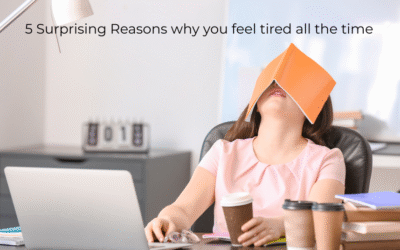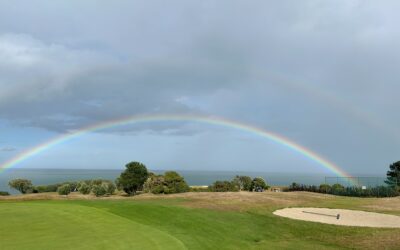What I Wish I Knew at 25 – and What I’d Tell a 25-year Old Now
If you could go back and talk to your 25-year-old self, what would you say?
I recently met a young woman who reminded me so much of myself at that age—passionate, idealistic, and 100% convinced she was making the right choices. She had just committed to a strict vegan lifestyle, saying it was worth the sacrifice to protect animals and save the planet. I admired her conviction. But when I gently mentioned that many vegan products are now highly processed and full of additives, she didn’t want to hear it. She insisted that those ingredients were tested, safe, even natural.
I recognised myself in her so clearly. At 25, I’d just gone vegetarian after learning about animal cruelty and the environmental impact of the meat industry. I devoured every book and documentary that confirmed I’d made the “right” decision. And I argued with anyone who challenged me—including family.
One uncle, who was deeply into nutrition, once told me, “You’d sometimes be better off eating a steak than just deep-fried chips when there’s nothing else on the menu.” But I didn’t listen. I had a point to prove. I thought I knew better.
The truth is: I didn’t. I wasn’t eating fast food, but I wasn’t nourishing myself properly either. And over time, I paid the price.
By my early 40s, I was unwell in ways I didn’t understand. I was gaining weight, always exhausted, irritable, and had intense mood swings. If I hadn’t eaten in a couple of hours, I was HANGRY—truly unpleasant to be around. My stress tolerance was low. I felt like I was constantly running on empty. For 10 long years, I struggled with infertility—yet doctors couldn’t find a clear reason.
Looking back now, I know my diet played a role in all of this. I know NOW what nutrients I was missing. No one tested for them back then, and I certainly didn’t know who to ask for help. I listened to the doctors who said that everything is fine with me.
It wasn’t that being vegetarian was the problem. It was that I didn’t know what I was doing—and I didn’t want to admit that to myself. I wasn’t fueling my body the way it needed to be fueled. I got away with a lot simply because I was young, but as I was getting older, my body couldn’t cope anymore.
So what would I tell my daughter or granddaughter today at 25?
Stay passionate—but stay curious. Don’t just follow a lifestyle—understand it. Learn what your body actually needs. Don’t assume health just because you’re eating “clean” or “plant-based.” Nutritional deficiencies are real, and they can shape your life in ways you won’t see until it’s much harder to fix.
If you’re struggling with health, energy, or direction—please seek help from someone who understands nutrition and can offer personalised advice. As a Nutritional Therapist, I’m trained to assess the body’s nutrient needs and how symptoms may relate to underlying imbalances. This includes working with blood tests from your GP, but I am also trained to interpret specialised functional tests, such as food intolerances, gut microbiome analysis, and even DNA testing. These can reveal things that conventional tests often miss.
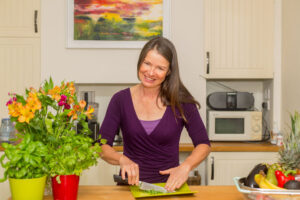
The second thing I would tell my 25 year old self is the crucial importance of muscle and strength training.
At 25, I stopped running because of knee pain. Years later, after improving my diet and regaining energy, I returned to running—but this time with a focus on proper technique and mechanics. The result? I ran multiple 10Ks, half-marathons, and three full marathons. The proudest moment? Completing a 50K run on my 50th birthday.
At 22, after a serious car accident and a fractured second vertebra, I was told to never lift anything heavier than 5kg. Fast forward to age 50, and I was deadlifting 75kg and back-squatting 50kg.
Through my nutrition studies, I learned that muscle mass is a foundation of a healthy metabolism. It increases energy, helps burn more calories at rest, improves insulin sensitivity, and supports cognitive function. In fact, research from my training in Nutrition for Longevity shows that maintaining muscle mass significantly reduces the risk of dementia and cognitive decline.
Here’s the catch: Muscle mass starts declining from around age 30. While I’ve been able to rebuild some of it after 45, it would’ve been easier—and I’d be much stronger—if I had never stopped in the first place.
Later in life, muscle is also critical for bone strength, especially as oestrogen levels drop. I had no noticeable menopause symptoms, so I didn’t consider HRT—something I now understand better. But without it, building and maintaining muscle is now my main line of defence for bone health.
So here’s what I’d say to my younger self—and to you, if you’re in your 20s or 30s:
Never stop moving. Never stop building strength. Never stop taking care of your body.
Your future self will thank you for it.
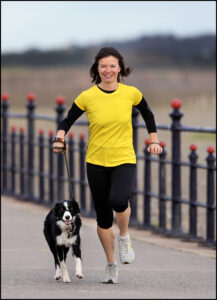
Ilona Madden with her dog Tess at the seafront at Bray Co Wicklow yesterday. Pic Steve Humphreys 13th November 2013.
The 3rd important thing I’d tell my 25-year-old Self: “Don’t Worry About What Other People Think”
If there’s one big regret I have — even though I’ve recently decided not to carry regrets anymore! — it is that I paid far too much attention to what other people thought I should be doing. (And by the way, “should” is another word I’ve recently banned from my vocabulary.)
I would have loved to study art straight after school. But I was told artists don’t make money and that I “should” learn a proper profession first.
I often felt I was not good enough — not in my work in hotels, as a tourist guide, as an artist or as a health coach and Nutritional Therapist. I constantly compared myself to people further along in their journey — or to people who simply weren’t me.
I would focus on the one person who gave negative feedback on a tour, and completely ignore the 30–40 others who were happy.
When something didn’t go perfectly, I blamed myself. I felt, I should have been better prepared, or known more, or done something differently.
I craved appreciation from others instead of valuing my own effort and commitment.
I focused on outcomes — which were often out of my control — rather than the preparation and dedication I brought to the table.
It’s a bit like golf: the moment you start focusing on the result instead of your next shot, things go astray.
What I realised — later than I would have liked — is that most of the time, I was making up what people thought of me.
Most people weren’t thinking about me at all — they were busy thinking about themselves.
And even if they were thinking I should have done something differently, well… maybe they just didn’t understand my reasoning. Or maybe we’ll never know what would have happened if I’d followed their way.
There are many things I used to think I did “wrong.” But looking back, I now see that every one of those experiences helped me grow. Yes, I learned the hard way — and I wish someone had told me this earlier: Don’t worry about what people think.
As Eleanor Roosevelt once said: “What other people think of you is none of your business.”
Let me be clear: not worrying about what others think doesn’t mean I don’t care about others. Far from it.
I care deeply about the welfare of my tourists and my health coaching clients. I always prepare thoroughly. I show up fully. I give my absolute best.
The difference now is: I do everything I can to prepare — and then I let go.
That shift allows me to be fully present on the day.
Before, I would overthink everything:
– Was route A better than B?
– Was this the best restaurant or should I have chosen another?
– Did I give the right advice, or should I have said something else?
That constant worry and self-doubt only created stress.
And when I’m stressed, I’m no good to myself or my clients — who can sense the uncertainty and lose trust.
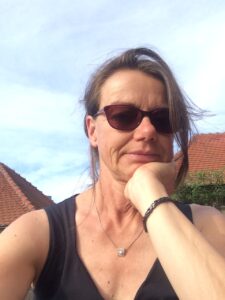
I am sharing my thoughts very openly here and maybe some people will judge me for it. I intend to ignore unless it is some constructive criticism. What I hope for though is that this post reaches those who need to hear it.
If you’re 25 (or younger… or older), I hope you can learn from my experience.
In many cultures, older people are valued for their wisdom — for sharing what they’ve learned to help younger generations. That’s all I’m hoping for.
If this resonates with you, feel free to share it with someone who might need it.
And if you have feedback, let me know. I’m not chasing approval anymore — but it’s still nice to hear if my words helped you in some way.
I understand, if you are young, you might not want advice from an “old” one. I understand that if you are “old” you don’t want to be sounding “preachy”. But if you’re over 60 like me, and you’ve learned some hard truths the long way around—share them. Not to lecture, but to gently offer what we wish someone had told us.
After all, wouldn’t it be wonderful to help someone you love to build a life full of health and happiness, and avoid unnecessary struggles?
And if you like to find out more about how a Nutritional Therapist and personalised nutrition can help you get better understanding of your health, please book a call with me at https://rightfood4uappointment.as.me/



